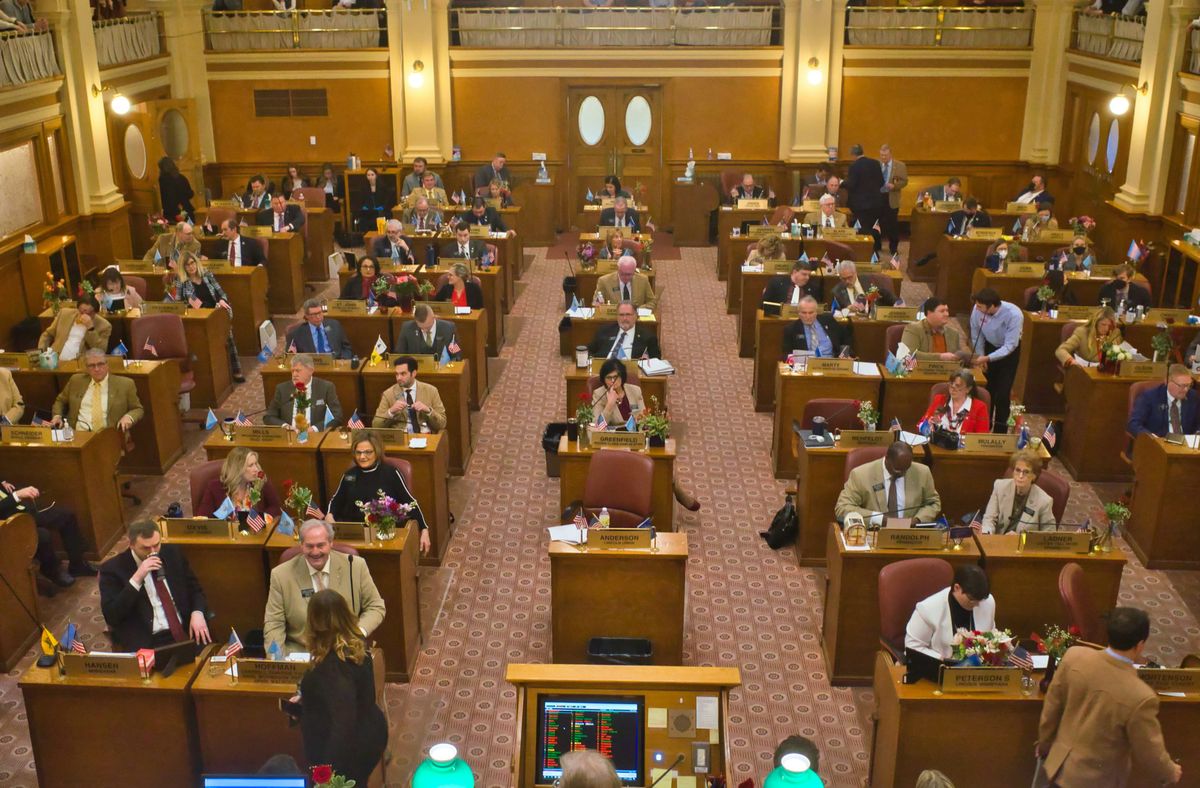House bill prohibits ‘divisive concepts’ at public colleges

South Dakota Governor Kristi Noem signed into law South Dakota House Bill 1012 on March 21. The bill limits “divisive concepts” in the classrooms of public universities and technical colleges. This bill will not limit subject matter eligible for teaching, but it will prevent mandatory speech on such topics in campus events like orientations.
House Bill 1337, which was drafted at the request of Noem and aimed to ban the teaching of critical race theory in K-12 public schools, passed through the House Education Committee but was struck down by the Senate.
Neither of the proposed bills actually mention critical race theory itself. HB 1012 intends to limit “divisive concepts” being promoted in classrooms.
Divisive concepts include topics that imply any demographic features are superior or inferior or a concept that is racist, oppressive or sexist, even if it’s not meant to be.
Currently, critical race theory isn’t specifically taught in South Dakota schools. Instead, the bill wants to keep divisive concepts from working their way into lessons. Reportage from the Argus Leader shows that those who favor the ban believe that these divisive concepts shame white people. Supporters of House Bill 1012 want to protect impressionable students from potentially being coerced into activism.
While she did not respond to being interviewed, Rep. Sue Peterson (R-Sioux Falls) is quoted in the Argus Leader saying that CRT can still be discussed in a way “that allows for differing ideas.” The passing of the bill prevents students from being forced to “accept ideas they don’t believe in,” Peterson said.
While the bill ultimately passed, it faced some opposition in both houses.
“There is no reason for South Dakota schools to ban critical race theory,” said Rep. Jamie Smith (D-Minnehaha) “The fact that teaching accurate history has become political opinion is disappointing. It is important that students are taught history as it occurred, without the input of opinion.”
Rep. Smith mentioned that Defense Secretary Lloyd Austin said Congress is focused on extremism and not ideology.
“This distinction is important because the right has used this subject as a political ploy to create fear about what their kids are taught in school,” Smith said.
Those who argue against CRT believe that divisive concepts taught in schools harm vulnerable students.
“South Dakota children deserve an education, not indoctrination,” Noem said to the Argus Leader.
In the same article, Rep. Peterson explains how the bill “would protect the state’s most vulnerable students from CRT, a concept [that] is often embedded in English classes and is part of ‘buzzwords’ like ‘diversity, equity and inclusion.’”
Now that Noem has signed the bill, it will go into effect and impact public higher education institutions.
Jenna Borseth is a political science professor at the University of South Dakota. Bill 1012 will impact USD, as it is a public university.
“Currently, I am unaware of any documented problems with the teaching of CRT,” Borseth said. “As of now, it does not appear that CRT is being taught in any K-12 schools. In addition, when it comes to covering difficult and divisive topics, educators are held to a code of ethics that they must follow which should already address many of these concerns.”
“The bill chills free speech at our public universities,” said Sen. Reynold Nesiba (D-Minnehaha), an economics professor at Augustana. “Although professors are protected in their classrooms, even posing a question like ‘is meritocracy racist or sexist?’ during a required orientation could be viewed as violating this law. It is questions like this that college students and faculty should feel free to debate both in and outside the classroom.”
House Bill 1012 will not affect Augustana, as it is a private institution. However, the education of AU students could now be different from other institutions.
“I am grateful that at Augustana University we see the necessity of exploring texts through a variety of lenses,” said Janet Blank-Libra, chair of the English and journalism department. “Especially at this particular point in time. There are stories that I use [in classes] that explore issues related to race. Even if I’m not using technically critical race theory, I’m certainly thinking about those texts contextually, and that means that I am exploring the existence of systemic racism.”
While the discussion in South Dakota’s public institutions might be different now, those at Augustana will continue to utilize different theories without worrying about infringing on this new law.
SEE NEXT: House bill regulates transgender participation in school sports



